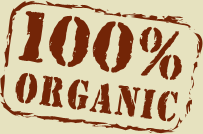In the documentary, Fat, Sick, and Nearly Dead, Joe Cross talks about eating a micronutrient rich diet after completing a reboot period of juicing.
Micronutrients are vitamins, minerals, and phytochemicals and often happen to be very low in calories. *Micronutrients are often referred to as “super foods” and include:
- Polyphenols – Found in nuts, and berries, these act as antioxidants and anti-allergenics.
- Carotenoids – Found in carrots, sweet potatoes, tomatoes, pumpkin, apricots, and mangoes. These include beta-carotene, lycopene, and lutein and also function as antioxidants.
- Phytoestrogens – Found in soy, seeds, whole wheat and other whole grains, and some fruits and vegetables. These are plant estrogens and may help prevent breast and prostate cancer.
Macronutrients are protein, carbohydrate, and fat all of which contain a lot of calories. Macronutrient foods include all animal-based foods:
- Meat Products (including poultry)
- Dairy Products (milk, yogurt, cheese, etc)
- Eggs
- Fish
At first glance, it looks like the reboot program is promoting a vegan diet. Assuming that followers of the diet are not supposed to eat meat, dairy, or eggs would lead one to that conclusion. However, the program actually promotes a micronutrient-rich diet. It does not restrict you from eating macronutrients. The website associated with the documentary does suggest the following guidelines for eating animal proteins after completing a juice reboot:
Think about protein in a new way. When you are not on a Reboot, you should be eating protein. Protein is essential for a healthy immune system, building and maintaining lean body mass, regulating the speed of digestion, and overall energy levels. As Americans, we eat lots and lots of animal proteins like meat, poultry and pork. The typical American plate is 50% animal protein, 25% overcooked vegetable and 25% starch like white potatoes. Health advocates recommend, reshaping our plates for balanced, healthy eating. Recreate your plate by shifting to 50% plant foods like vegetables or some fruit, 25% lean protein and 25% whole grain.
Examples of the Plant Proteins You Should Be Eating:
- Beans & Legumes (lentils, split peas, black beans, garbanzo beans, hummus, kidney beans)
- Nuts & Seeds (walnuts, almonds, pumpkin seeds)
- Natural Nut Butters (almond, peanut)
The Animal Proteins You Should Be Eating:
- Soy Foods (edamame, tofu, soy milk)
- Organic, cage free Poultry
- Grass Fed lean beef (bison, ostrich, buffalo)
- Organic eggs
- Wild caught fish
As it turns out, the program is not in any way promoting vegetarianism or veganism. It is actually just encouraging its followers to choose to eat organic, free-range, pasture fed meat and animal products whenever possible. There are many reasons to do so, some of them nutritional and some of them ethical... both of which I will discuss in future posts.
There are also some controversial aspects to following this type of lifestyle. Organic foods can be much more expensive than those found in the regular section of your grocery store. In some areas, it may be difficult to find organic foods, or difficult to find the variety of foods that people need to make a complete healthy diet.
Personally, I think that trying to choose organic and local produce and animal products whenever possible is the best rule of thumb. There will be times when the option is not available, and that's okay. There will be times when financial constraints won't allow you to buy everything organic, and you'll have to pick and choose which items to buy organic, and which to buy in the regular section. That's okay too. Some foods are better to buy organic whenever possible, and I'll try to do another post sometime soon on the topic.
*I am not a professional dietitian or nutritionist. The information presented here was obtained through gathering my own research, mostly from related websites and blogs. This is not for educational purposes whatsoever, but rather to present new ways of thinking about the food we eat.





No comments:
Post a Comment